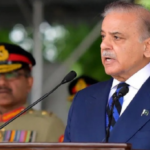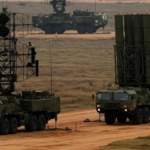The International Monetary Fund (IMF) recently approved a $1 billion loan to Pakistan, and the decision has confused and upset many people, including Jammu and Kashmir’s Chief Minister, Omar Abdullah.

Also See: Why India Targeted These 3 Pakistani Air Bases: Nur Khan, Murid, and Rafiqui
He questioned how giving money to Pakistan would help reduce the current tension between India and Pakistan. On social media platform X (formerly Twitter), he said, “I’m not sure how the international community thinks tensions will ease when the IMF gives money to Pakistan while they’re attacking places like Poonch, Rajouri, Uri, and Tangdhar.”
I’m not sure how the “International Community” thinks the current tension in the subcontinent will be de-escalated when the IMF essentially reimburses Pakistan for all the ordnance it is using to devastate Poonch, Rajouri, Uri, Tangdhar & so many other places.
— Omar Abdullah (@OmarAbdullah) May 10, 2025
Many others also questioned the IMF’s decision online. One user wrote that foreign aid might be fueling conflict instead of helping. Another even tagged US President Donald Trump and Elon Musk, asking what’s really going on.
Read More: Trump Wants India-Pakistan Tensions to End Quickly, Said White House
This criticism came after Pakistan launched drones and missiles at India early Saturday morning, including a Fattah-1 missile. Pakistani media is calling this attack “Operation Bunyan Ul Marsoos.” Over the past two days, Pakistan has continued missile and drone attacks in Jammu and Kashmir, Rajasthan, and Punjab, along with heavy firing near the Line of Control (LoC).
India has long been concerned that loans given to Pakistan may be misused to fund cross-border terrorism. New Delhi opposed the IMF’s larger loan proposal of $2.3 billion to Pakistan. India argued that the money could be used to support terrorism rather than helping the country’s economy.
During an IMF board meeting on Friday, India voiced its concerns but chose to abstain from voting on the $1 billion loan and a proposed $1.3 billion Resilience and Sustainability Facility (RSF) loan. India’s decision to abstain was not neutral—it was a diplomatic way to show strong disagreement without directly blocking the loan.
Why Did India Abstain?
Military Control of Pakistan’s Economy:
India criticized how much control the Pakistan Army has over the country’s economy. The army runs large business groups and has major influence over financial decisions, which reduces transparency and limits civilian control.
Support for Terrorism:
India objected to giving loans to a country that supports terrorist groups responsible for attacks on Indian soil. India argued that this violates global standards and damages the IMF’s image.
Sending a Diplomatic Message:
By abstaining, India sent a strong message during rising tensions without creating a direct fight in the IMF. It was a way to express disapproval while respecting IMF procedures.
Even though India abstained, the IMF approved the loan, showing that many countries still support helping Pakistan to prevent economic collapse. But India’s action served as a reminder that giving financial support to countries that promote terrorism or lack proper reforms could create bigger global problems.
Also See: Air India Suspends Tel Aviv Flights Until May 25 Amid Rising Tensions
In short, India’s vote was not just about money—it was about fairness, security, and demanding accountability from global institutions.




